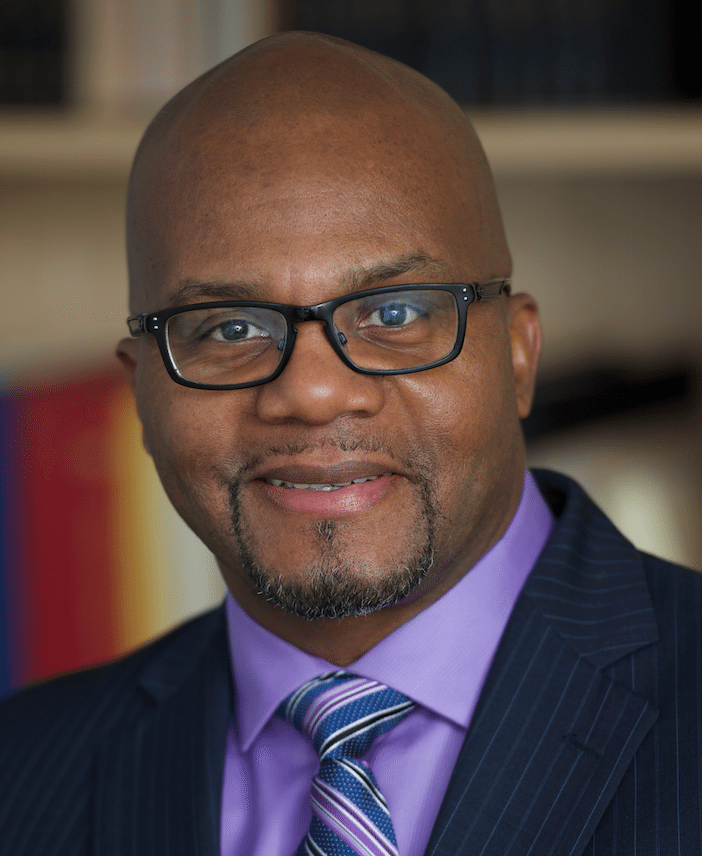Biography
Byron E. Price, Ph.D. is a professor of public administration and the former Dean of the School of Business at Medgar Evers College of the City University of New York in Brooklyn and the former Lillie and Nathan Ackerman Chair of Social Justice at Baruch College (Visiting Endowed Professor), which is housed in the Center on Equality, Pluralism and Policy. He formerly served as the Director of the Barbara Jordan Institute of Policy Research and as an associate professor of political science in the Barbara Jordan Mickey Leland School of Public Affairs at Texas Southern University (TSU) in Houston, Texas. Dr. Price spent five years at Rutgers University-Newark at the School of Public Affairs and Administration where he served as an assistant professor of public administration and director of the MPA and Executive MPA Programs as well as a number of other leadership positions including serving as the Associate Director of the National Center for Public Performance and Editor-in-Chief of the Journal of Public Management and Social Policy. Before beginning his academic career, Byron served in the United States Army as Deputy Commander, Executive Officer and Training Officer at Fort Sill in a period that covered the Desert Storm operation and he honorably separated in 1991 and achieved the rank of Captain. A leading scholar in the field of prison privatization, he is the author of the book, Merchandizing Prisoners: Who Really Pays for Prison Privatization published by Praeger Publishers in March 2006 and the coedited 3-volume set entitled “Prison Privatization: The Many facets of a Controversial Industry” by Praeger Publishers, September 2012. His areas of research are prison privatization, prisoner reentry, school-toprison pipeline, cause-based entrepreneurship and social justice.
He is acutely aware of the balance between utilizing the theory of academia and its application to solving real world problems. During his time at Rutgers University, he was responsible for the creation of the Diversity Fund in 2004, which enabled disadvantaged minority students an opportunity to continue their studies. He also taught in the Executive MPA program where leading local and state officials were able to bridge theory and practice. For his work, he was awarded in 2006 the Human Dignity Award; one of the highest honors Rutgers bestows on individuals dedicated to promoting a culturally enriching environment at Rutgers and the surrounding community.
His philosophy of teaching is grounded in the belief that every student has something to offer. As such, every student is a teacher as well as a student. During my years of teaching, I have learned from my students the requirements of being an effective teacher: 1) Setting clear expectations from day one, 2) being a good listener, 3) withholding judgment, 4) becoming aware of a student’s background, experiences, and goals, 5) allowing students to take an active role in their learning, 6) learning and addressing students by their names, 7) showing compassion and sincere interest, 8) making myself available to students as well as mentoring them, 9) rewarding effort and, above all, 10) being fair. These are a few examples of what I feel promotes teaching effectiveness.
My research journey, like many other researchers, I initially began my scholarly interest with a desire to conquer the world through my research. I quickly learned that it was critical to find a “research niche” and work tirelessly to assist “my field” in the discovery and advancement of knowledge. My research is pursued from an activist scholar perspective. As an activist scholar, I have always been aware of the social inequalities that exist in our society. As a result, I use my scholarship to give voice to the voiceless and work in solidarity with them to bring about change. Scholarship is inadequate if not applied. Thus, I am committed to improving society for all aggrieved as a result of the unintended consequences too many of our bureaucracies visit upon the poor. By using scholarship as tool to raise the level of discourse and consciousness regarding a problem, scholarship seeds change.
I have resigned myself to being an advocate of the poor, powerless, and hopeless. It is through my activist scholarship that I hope to continue to make a positive contribution to society.
A passionate traveler, Dr. Price has visited over 40 countries and 43 U.S. states. His thirst for learning is extended within and beyond the walls of the academy. He has traveled to all but two of the seven continents and has also developed both a professional and personal interest in the development of Africa.
Dr. Price received his undergraduate degree and his second graduate degree in Public Administration/Public Policy, from Texas Southern University. His other advance degrees were received at Oklahoma City University, an MBA in 1991, and his Ph.D. from Mississippi State University in 2002.
A native son of Memphis, Tennessee, he has lived and worked in the South, Southwest, Midwest and the Northeast. Dr. Price is an avid reader, traveler and adventure seeker in his spare time, Dr. Price has trekked Machu Picchu and plans to trek the Mt. Kilimanjaro in the future.


